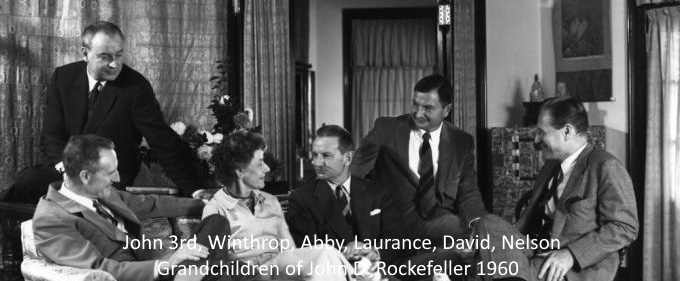Succession and the Business of Money
by charles | Comments are closed05/02/2023
If I thought all I could achieve over the next ten years was 13 percent annual growth I’d junk my company and start over. – Anonymous Founder
Sooner or later most successful businesses lose the founder’s intensity and vision, and attention eventually shifts to the mundane business of making money.
Founders grows old, the heirs lose interest, marriage, divorce, and death intervene and before they know it all that’s left are trusts, dividends, and decline.
It doesn’t have to be that way. Some families stay on top for centuries. A Bank of Italy study a few years back found that many wealthy Florentine families have stayed wealthy for 600 years.
And a recent IMF paper concludes that “for given portfolio allocation, individuals who are wealthier are more likely to get higher risk-adjusted returns” and “high returns both bring individuals to the top of the wealth scale and prevent them from leaving it.”
Education, culture, and entrepreneurial talent all play a part and an internal investment office for UHNW families may help promote generational alignment and cohesion.
As professor Mandy Tham at the Singapore Management University writes, a constructive family office can serve as a forum where the generations can negotiate and agree on investment goals and legacy.
But building a family investment office to last is not easy. Too many family heads confront what Noam Wasserman, professor, author, and dean of Yeshiva University’s Sy Syms School of Business calls the founder’s dilemma.
Founders who want to manage empires will not believe they are successes if they lose control, even if they end up rich. Conversely, founders who understand that their goal is to amass wealth will not view themselves as failures when they step down from the top job.
Family office confidential
What some founders and CIOs really think about building and running an investment office.
A family office investment operation will never earn as much as the family business, so why have one?
The business of money management is all about risk mitigation and wealth preservation and first-gen founders aren’t usually built that way.
A notably successful individual had this to say after we showed him our latest 10-year Endowment Performance Rankings a few weeks ago.
Keep in mind that these are terrific returns for diversified, multi-asset, global portfolios and these CIOs are the best in the business.
Bowdoin and former CIO Paula Volent topped the charts with a 13.3 percent return, MIT and Seth Alexander finished a hair’s breadth behind at 13.02, Brown and Jane Dietze ranked third with 12.3, and Princeton and Andy Golden fourth at 12.2.
After studying our rankings and returns, he paused for a moment and then said “Charles, if I thought all I could achieve over the next ten years was 13 percent annual growth I’d junk my company and start over.”
[The average return by the way, for our pool of one-hundred endowments over one billion dollars AUM, was 9.2 percent with a mean of 9 percent.]
I don’t want a chief investment officer looking over my shoulder.
Jon Hirtle, co-founder of Hirtle Callaghan, has been managing family and institutional money for almost forty years.
We asked him why successful founders don’t always see eye to eye with endowment style chief investment officers and here’s his reply.
Read More »
